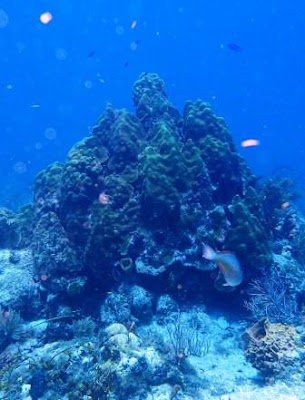Eyes in the Sky! We had a perfect day for viewing the Great American Eclipse at KML. Clear sunny skies and we were prepared with our official viewing glasses.
A few fun facts
KML location: (24.8257, -80.8143)
Eclipse start time: 1:37pm (13:37)
Eclipse max time: 2:58pm (14:58) 74.15% coverage
Eclipse end time: 4:21pm (16:21)
Weather: Clear skies, Wind East 18 knots
We had a monitoring station set up under an 80% shade cloth with a HOBO data logger recording air temperatures and light intensity every 5 minutes
 |
| The start: 1:37pm |
 |
| 1:49pm |
 |
| Time: 2:20pm 14:20 |
 |
| 2:49pm |
 |
| little moon shadows through the gumbo limbo leaves! |
 |
| 5 minutes after maximum at KML: 3:03pm |
Our logger shows a 5.6°C air temperature drop with the lowest temperature and light intensity recorded 12 minutes after maximum eclipse
And of course we were adding observations to NASA GLOBE Observer!














































